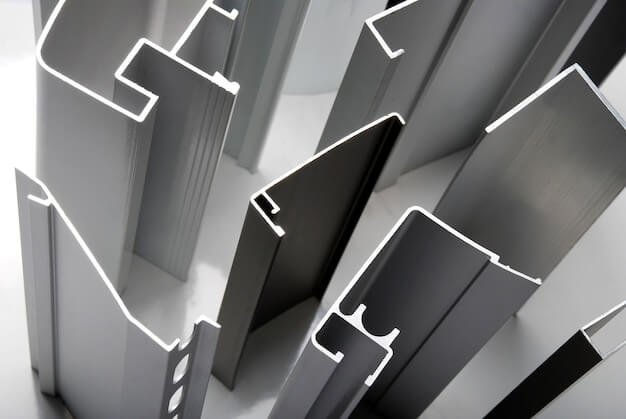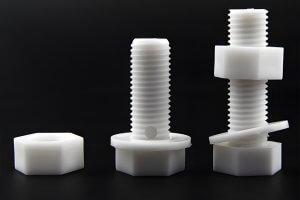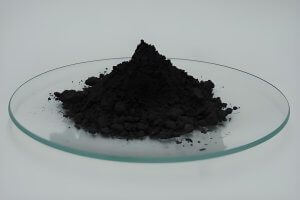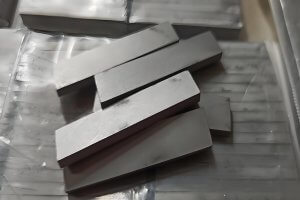Introduction to Precision CNC Machining and Custom Parts
Precision CNC (Computer Numeric Control) machining is a cutting-edge manufacturing process that utilizes computer-controlled machinery to produce intricately designed custom parts, adhering to strict tolerances. These custom parts can range from minute components of electronic gadgets to large pieces used in automotive or aerospace industries. The applications of precision CNC machined custom parts are wide and varied, including sectors like healthcare, aviation, electronics, defense, and telecommunications among others.
- At the crux of CNC machining lies the principle of subtractive manufacturing, wherein a block of raw material undergoes operations like drilling, milling, or turning, guided by digitized 3D design data, leading to precise and custom-built end products.
- Aluminum and brass emerge as popular choices for CNC machining processes, each flaunting its unique strengths & susceptibilities which influence their selection based on the component requirements.
Material Choices for Precision CNC Machining: Aluminum vs. Brass
Precision CNC machining involves choosing the ideal material to ensure optimum performance of the final product. The choice between aluminum and brass is pivotal, as both materials have distinct properties tailored for specific applications.
Overview of Aluminum in CNC machining
Aluminum is an incredibly popular choice due to its excellent machinability, lightweight nature, outstanding corrosion resistance, and thermal conductivity. It’s a soft metal, allowing for speedier production times because the CNC machine can cut through it quickly, regardless of complexity or intricacy of design. In the field of aerospace and automobile manufacturing, aluminum’s strength-to-weight ratio provides an unbeatable advantage.
Overview of Brass in CNC machining
Brass, on the other hand, boasts superior durability, wear-resistance, and aesthetic appeal, contributing to its usage in sectors like plumbing, electronics, and decorative fittings. This harder metal promotes longevity of tools and reduced maintenance costs due to its self-lubrication properties.
In sum:
- Aluminum demonstrates exceptional lightness, corrosion resistance, and heat dissipating characteristics, favored in automotive and aerospace industries.
- Brass offers high durability, pleasing aesthetics, and inherent lubricity making it suitable for hardware fitting, decoratives, and electronic components.
Considerations when Choosing Between Aluminum and Brass
In the field of precision CNC machining, selecting the right material for custom parts is vital. Two popular choices are aluminum and brass because of their favorable mechanical properties. For instance, Aluminum’s light weight makes it ideal for applications where part strength and reducing overall equipment mass or size is paramount. But It’s also critical to acknowledge aluminum’s relatively lower durability compared to brass, which may impact its long-term use in high-stress conditions.
- Durability: While both metals exhibit decent toughness, brass typically surpasses aluminum due to its higher malleability and tensile strength; thus ensuring robustness during day-to-day operations.
- Mechanical Properties: Aluminum boasts impressive machinability— ease and speed with which it can be cut — making it a more cost-effective option where high-speed production is crucial. Conversely, brass’s better thermal conductivity contributes to smoother machining processes by dissipating heat away from cutting tools faster.
- Corrosion Resistance: Corrosion plays a significant role in determining the lifespan of your custom parts. Despite aluminum forming an oxide layer that aids corrosion resistance, brass generally exhibits superior resilience against oxidation and rust owing to its copper composition.
Taking all these factors into account ensures the choice between aluminum and brass leads to custom parts that best fit their intended purpose and environment.
Detailed Evaluation of Aluminum in Precision CNC Machining
Aluminum is a widely used material in precision CNC machining due to its favorable properties and versatility. Let’s evaluate the characteristics and considerations of aluminum in this process.
1. Material Properties
Aluminum offers several advantageous properties for precision CNC machining:
- High Strength-to-Weight Ratio: Aluminum has a high strength-to-weight ratio, making it suitable for applications where weight reduction is important without compromising structural integrity.
- Corrosion Resistance: Aluminum exhibits good corrosion resistance, making it suitable for applications in various industries, including aerospace, automotive, and consumer goods.
- Thermal Conductivity: Aluminum has excellent thermal conductivity, allowing for efficient heat dissipation in applications that require thermal management.
- Machinability: Aluminum is known for its excellent machinability, enabling precise and intricate machining operations.
2. Industries and Applications
Aluminum finds extensive use in precision CNC machining across various industries:
- Aerospace: Aluminum is commonly used in aerospace applications due to its lightweight nature and strength. It is used for components such as aircraft frames, panels, and engine parts.
- Automotive: Aluminum is utilized in the automotive industry for parts that require weight reduction, such as engine components, chassis, and body panels.
- Consumer Goods: Aluminum is popular in the consumer goods industry for products like electronics enclosures, smartphone frames, and kitchen appliances.
- Healthcare: Aluminum is used in medical devices and equipment due to its biocompatibility and corrosion resistance.
3. Considerations
When selecting aluminum for precision CNC machining, consider the following factors:
- Material Grade: Different grades of aluminum offer varying properties, so it’s important to choose the appropriate grade based on the specific requirements of your project.
- Finishing Options: Aluminum can be finished in various ways, such as anodizing, painting, or polishing, to enhance its appearance and provide additional protection.
- Cost: While aluminum is generally cost-effective compared to other metals, the overall cost can vary depending on factors such as material grade, complexity of machining, and finishing requirements.
4. Summary
In summary, aluminum is a highly suitable material for precision CNC machining due to its favorable properties, including high strength-to-weight ratio, corrosion resistance, thermal conductivity, and machinability. It finds applications in industries such as aerospace, automotive, consumer goods, and healthcare. Consider the specific requirements of your project, including material grade, finishing options, and cost considerations, to determine if aluminum is the right choice for your precision CNC machining needs.
Assessment of Brass in Precision CNC Machining
In the realm of precision CNC machining, brass poses several benefits that uphold its desirability. First and foremost, the machinability of brass is remarkable. Machines respond favorably to it, enabling processes like cutting and drilling with marked efficiency, benefiting from low wear on machinery and tooling, contributing to overall cost effectiveness.
Furthermore, its excellent thermal conductivity enhances speed operations since heat dispersion is effectively managed.
However, employing brass does present some challenges. For projects requiring magnetic property, brass’s inherent non-magnetic characteristic may pose a disadvantage, often necessitating alternative material consideration or complex engineering solutions to work around this trait.
Cost-Effectiveness of Aluminum vs. Brass
In the precision CNC machining industry, the cost-effectiveness and long-term value of materials play a pivotal role in decision-making. Comparing aluminum and brass reveals distinct pricing considerations. Typically, raw aluminum is cheaper than brass due to brass’s richer aesthetic allure and superior heat resistance. This may impact the initial budget sharply if large quantities are required.
- Durability: On the other hand, if we consider durability, aluminum outperforms brass because it is resistant to corrosion and can withstand extreme temperatures while maintaining its structural integrity.
- Maintenance costs: Less maintenance costs associated with aluminum also contribute to its overall cost-effectiveness. Given that aluminium resists both oxidation and corrosion, parts manufactured from this material generally require less upkeep compared to brass components.
Furthermore, more intricate designs might drive up production costs for brass since it’s tougher to machine than aluminum. Therefore, despite higher upfront costs, choosing aluminum could provide more economical benefits over time given its durability, lower maintenance costs, and ease of machining.
Case Study Example: Application-Based Decision Making
In the world of Precision CNC machining, choosing between aluminum and brass for custom parts often boils down to the particular application requirements. Taking a practical look at real-life scenarios helps elucidate this process. For instance, in creating components for an aerospace company, precision was crucial, but weight constraints were also critical. Using aluminum, which is lighter than brass, yet still robust and malleable enough for precise shaping, proved to be the suitable choice.
- Component: Aerospace parts
- Main Considerations: Weight and Precision
- Selected Material: Aluminum
In another scenario, a clock manufacturing company needed intricate components with high resistance against corrosion over time. In this case, given brass’s superior anticorrosive properties combined with its excellent machinability attributes allowing complex shapes to be created with fine details, brass won out. As such, decision making in material selection indeed relies on context-specific needs.
- Component: Clock parts
- Main Considerations: Corrosion Resistance and Intricacy of Design
- Selected Material: Brass
Conclusion and Recommendation
In conclusion, the choice between precision CNC machined aluminum and brass for your custom parts hinges on understanding your specific requirements and intended use. When it comes to strength, versatility, and lightweight characteristics, aluminum showcases superiority; it is ideal in the aerospace industry and automotive parts production where weight reduction is necessary. Conversely, brass shines with its superior machining efficiency, excellent corrosion resistance, and aesthetic appeal, which makes it suitable for decorative parts or components that require high conductivity . Below are some key points:
- Choose aluminum for lightweight, strong, and versatile custom parts.
- Select brass for highly conductive, aesthetically appealing, and corrosion-resistant components.
Therefore, directly aligning material properties with the nature of your projects will maximize overall equipment effectiveness while minimizing unnecessary costs.
Other Articles You Might Enjoy
- Aluminum CNC Machining Service for Custom Parts
Aluminum CNC machining stands at the forefront of modern manufacturing, epitomizing precision, versatility, and efficiency. With its widespread applications across industries ranging from aerospace to automotive and beyond, aluminum CNC…
- Elevating Precision Standards through Chamfer in CNC Machining
1. Introduction: The Pursuit of Unparalleled Precision In the realm of CNC machining, precision is paramount. This section introduces the article by exploring the significance of precision in manufacturing and…
- Precision Prowess: Unveiling the Advantages of China CNC Machining
1. Introduction: The Role of Precision in Manufacturing Excellence In this introductory section, we delve into the critical role that precision plays in manufacturing and set the stage for an…






